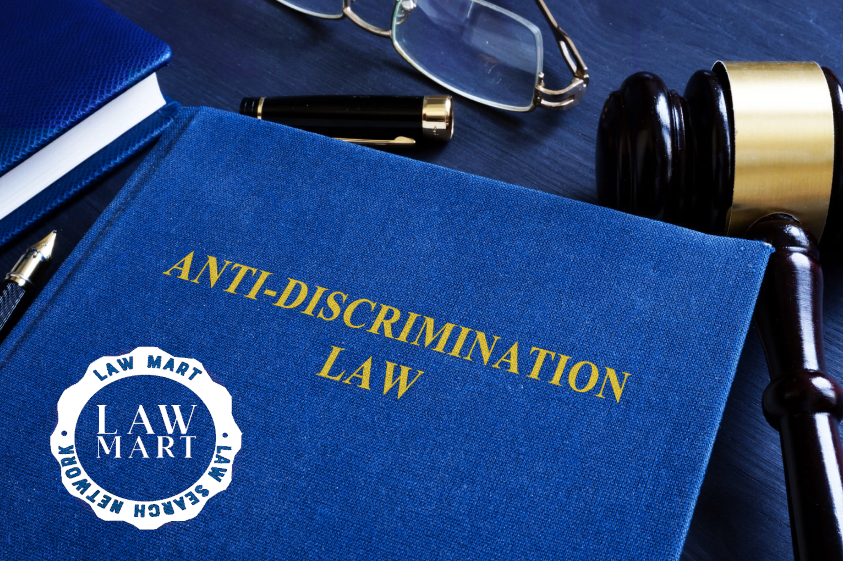
REVISED ANTI-DISCRIMINATION LAW
The State of California has recently enacted a barrage of revised anti-discrimination laws that will take effect at various times between 2019 and 2021. Employers ranging from 10-employee shops to large, publicly-traded corporations should take notice, as these laws will affect nearly every business.
Talking to Job Applicants About Pay
In January 2018, AB 168 took effect and prohibited employers from asking job applicants about their past salaries or wages. Futhermore, it also required employers to provide pay scales “upon request” to applicants. The apparent goal of this law, codified as Labor Code section 432.3, was to stop gender-based pay disparities that arose when employers based pay for new applicants on their previous salaries. Nevertheless, it failed to define key terms and contained several ambiguities.
AB 2282, effective as of January 1, 2019, clarifies at least some of the questions the previous law raised.
One of the most noteworthy criticisms of the AB 168 was that it made no difference between brand-new applicants and current-employee applicants. The California Equal Pay Act now clearly allows employers to consider a current employee’s wage or salary with the company in deciding how much to pay them for a new internal position.
Another source of uncertainty with AB 168 was that it required employers to disclose their “pay scale” to applicants “upon reasonable request.” However, the law failed to define “pay scale” as well as “reasonable request,” leaving numerous employers frustrated. With the most revised amendment, these ambiguities were fixed. “Pay scale” was defined to mean a range – either for salary or for an hourly wage. And “reasonable requests” were defined as requests applicants could make only after they had finalized an initial interview.
Although, the most vital amendment under AB 2282 was that employers were authorized to ask an applicant for their “salary expectations”.
Non-Disparagement, Forbidden Confidentiality, and Waiver Agreements
Effective as of January 1, 2019, a new Civil Procedure Code bans employers from including a requirement that forces employees to keep facts confidential in settlements of sexual harassment and discrimination matters. However, settlements may still ban the employee from disclosing the amount paid, as well as forbid the employer from disclosing the plaintiff-employee’s name, if he or she chooses to remain unnamed.
Nevertheless, a different law allows settlements of other (non-sexual) discrimination cases to include confidentiality provisions. SB 1300 prevents employers from requiring employees to sign “non-disparagement” agreements that prevent disclosure of any harassment or discrimination (e.g., based on race, gender, age) as a condition of employment, raises, or bonuses. Yet this law exclusively allows settlements of discrimination claims to include such non-disparagement clauses.
Small Employers’ Harassment Training Requirements
In previous years, only companies with 50 or more employees were required to provide harassment training. Now, however, employers with only 5 or more employees must abide by, providing 2 hours’ training to supervisors and 1 hour of training to all other employees within the first 6 months of their hire. This initial round of training must be completed by January 1, 2020, and must be repeated every two (2) years.
If you have any questions about your company’s legal requirements for harassment training, or regarding your compliance with any of these other revised laws, our experienced employment attorneys are available to assist you 24/7.
Quotas for Women as Board of Directors
Maybe the most publicized women’s rights law for 2019 is SB 826, which presents with publicly-traded companies until December 31, 2019 to add at least one woman to their boards of directors. The requirements will then become greater based upon the total number of board members by the second deadline of December 31, 2021. This law is the first of its category in the country, and while some companies have applauded the measure as it tracks with their own diversity efforts, others however have gone in opposition to it as a needless imposition of quotas on companies who should be free to select whichever directors they pick.
If your business faces unexpected challenges with these revised discrimination-related laws taking effect this year, our firm’s expert employment lawyers can work with you to ensure you are in compliance.
We Are Here For You 24/7
The faster you speak to a Business Litigation Attorney the better. Waiting too long to file business cases can complicate your case. Make it easy on yourself. Call us to talk with an experienced business lawyer right away. Your call is confidential, and you’re FREE CONSULTATION with one of our business litigation attorneys at (310) 894-6440.
Lawyer Referral Service
If you are in need of a business litigation attorney to help you get appropriate compensation and medical care you deserve, you should contact an attorney today. Our experienced business litigation attorney will help you find the solutions you need for your legal issues.
If you have any questions about the information provided above, please contact Law Mart at (310) 894-6440. Law Mart is a Lawyer Referral that can provide you with a Business Litigation Attorney.



